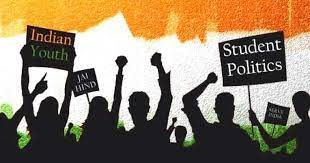The Rising Wave: Youth Interest in Politics
Introduction:
In recent years, there has been a noticeable surge in youth interest in politics, marking a departure from the traditional notion that young people are apathetic towards political affairs. This shift is particularly significant as it reflects a growing awareness and active participation of the younger generation in shaping the political landscape. In this article, we will explore the factors driving this newfound interest and its implications for the future of democracy.
Social Media and Information Accessibility:
One of the key drivers behind the increased engagement of youth in politics is the widespread use of social media platforms. Social media has become a powerful tool for political awareness and activism, providing a space for young individuals to share and access information. Platforms like Twitter, Instagram, and TikTok have given a voice to the youth, enabling them to discuss and debate political issues, share their opinions, and mobilize for various causes.
Global Events and Activism:
Recent global events, such as climate change protests, social justice movements, and youth-led initiatives, have ignited a sense of urgency among the younger generation. Witnessing their peers taking the lead in advocating for change has inspired many young individuals to become politically active. The desire to address pressing issues and create a better world has fueled their interest in politics as a means of effecting meaningful change.
Education and Political Literacy:
As education systems increasingly emphasize the importance of civic engagement, young people are becoming more politically literate. Educational institutions are incorporating discussions on politics, governance, and current affairs into their curricula, equipping students with the knowledge and critical thinking skills necessary to navigate the complex world of politics. This enhanced understanding encourages active participation and fosters a sense of responsibility among the youth.
Advocacy for Representation:
Youth today are advocating for increased representation in political spheres. Recognizing the need for diverse voices to address multifaceted challenges, young individuals are actively pursuing opportunities to enter politics. Grassroots movements and organizations focused on youth empowerment are working towards breaking down barriers and fostering a more inclusive political landscape.
Bridging the Generational Gap:
In some cases, the generational gap in political ideologies and priorities has motivated the youth to become more politically engaged. Feeling a sense of responsibility to shape their own future, young people are pushing for dialogue and understanding with older generations. This desire to bridge the gap and find common ground is driving increased political participation among the youth.
Conclusion:
The surge in youth interest in politics is a positive and transformative force for democracies worldwide. Social media, global events, education, advocacy for representation, and efforts to bridge the generational gap are collectively shaping a more politically aware and active generation. As these young individuals continue to assert their influence, their impact on political landscapes globally is likely to be profound, bringing fresh perspectives and a commitment to positive change. The rise of youth in politics signals not only a shift in demographics but also a promising evolution towards more inclusive and dynamic political systems.





